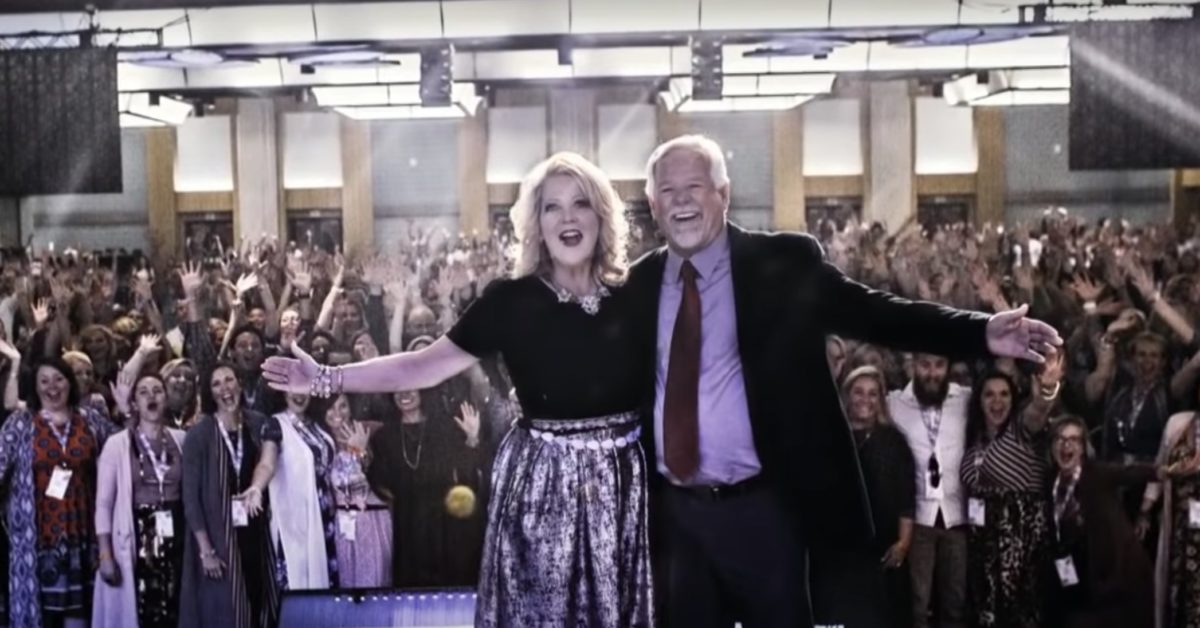The multilevel marketing company LuLaRoe has agreed to fork over $4.75 million to settle a lawsuit filed by the state of Washington accusing the company of conducting a pyramid scheme.
The state Attorney General Bob Ferguson announced the settlement in a press release two weeks prior to the lawsuit going to trial against the multilevel marketing clothing company. Ferguson had named the company, along with its husband and wife co-founders, Deanne and Mark Stidham, as defendants along with Deanne’s son Jordan Brady.

Ferguson will use $4 million of the funds to pay restitution to Washington residents who “lost money, or who may have quit their job or sacrificed opportunities as a result of LuLaRoe’s deception, but who failed to make a ‘full-time’ income as LuLaRoe promised.” The state estimates that close to 3,000 residents will receive these checks.
“LuLaRoe tricked Washingtonians into buying into its pyramid scheme with deceptive claims and false promises,” Ferguson said in the press release. “As a result, thousands lost money and two individuals made millions from their scheme. Washingtonians deserve fairness and honesty — and accountability for those who don’t play by the rules.”
In a press release announcing the settlement — Mark Stidham revealed how the lawsuit was too expensive to justify continuing to fight.
RELATED: Brandon Blackstock Says He Did Not Defraud Kelly Clarkson Millions Over The Course Of Her Career
“Even though we believed we would win the case eventually – whether at trial or on a subsequent appeal – the expense would be enormous and the amount of time senior management would have had to devote to the litigation during the trial would have been a distraction from our business,” he said.
The company additionally stated that while they were settling, the agreement “specifically states that none of the defendants has admitted liability or violation of any laws” and the “defendants denied, and continue to deny, any wrongdoing.”
LuLaRoe will also be required to adhere to certain guidelines while operating in the state in the future –including publishing an “income disclosure statement that accurately details retailer income potential.” This will ensure that people understand how much money they can actually make through LuLaRoe.
LuLaRoe also will only be able to pay bonuses to retailers based on that person’s individual sales, and not the sales on the retailers who report to them.
The settlement also regulates LuLaRoe’s refund policy, after several consultants complained they were stuck with thousands of dollars of merchandise they could neither sell nor return to the company.
LuLaRoe is required to allow new retailers to return any and all merchandise for 45 days after joining the company. It also bans the company from applying “certain types of deductions from refund requests.” In addition, LuLaRoe must return any merchandise that is not eligible for a refund to the retailer.
Ferguson filed the lawsuit against LuLaRoe back in 2019, saying how the defendants “made unfair and deceptive misrepresentations” about how much money a person could make selling the company’s clothes. In addition, the lawsuit also objected to the company’s bonus structure and refund policy.
“Today’s resolution, filed in King County Superior Court, prohibits LuLaRoe from operating a pyramid scheme. Additionally, LuLaRoe must be more transparent with retailers to avoid future deception,” the press release stated.
The Washington state lawsuit is only one of many the company has been fighting in court over the past few years.